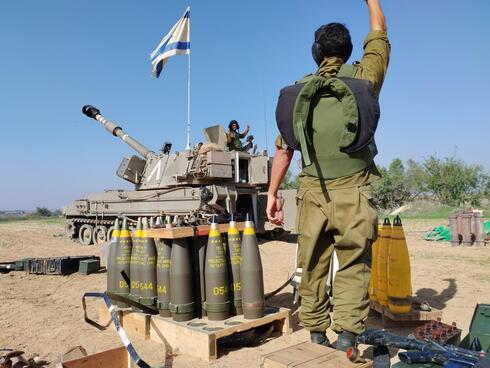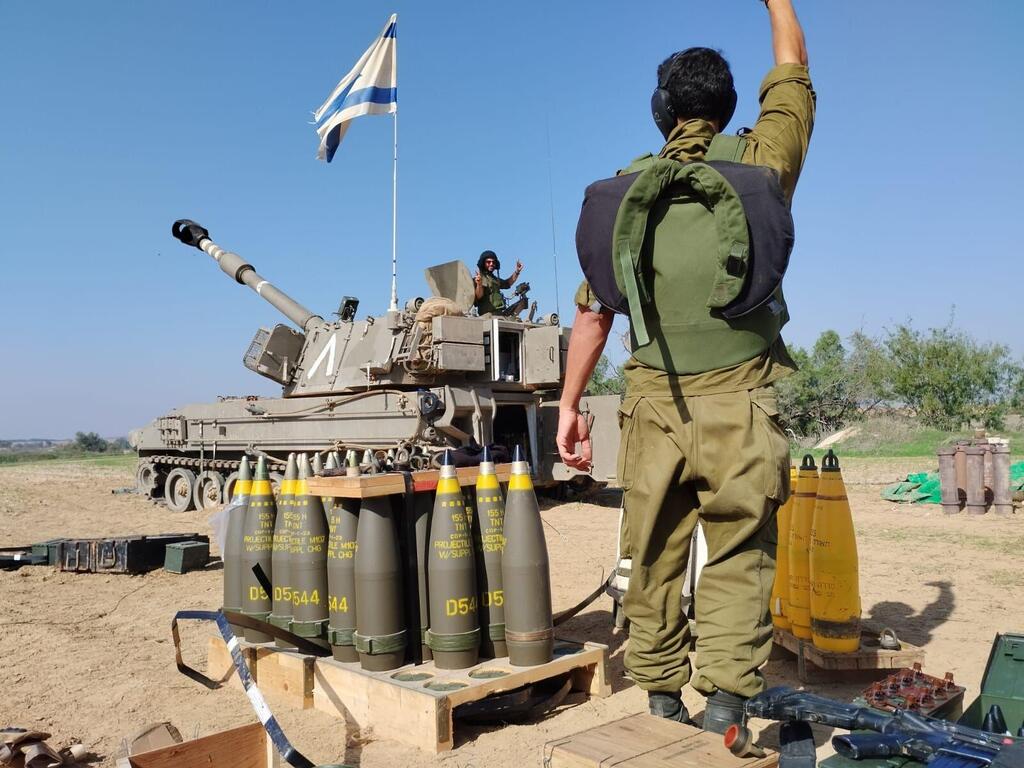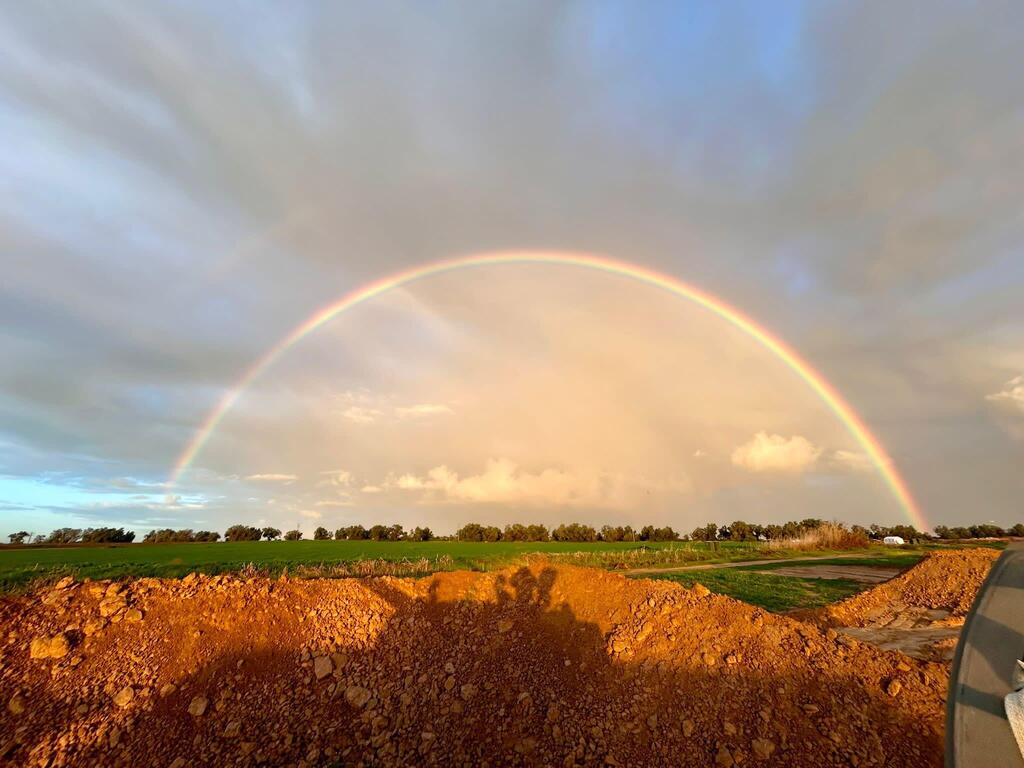
Olim at War
‘Serving in reserves reminds me of why I made aliyah’
100 days into Israel’s war against Hamas and since the October 7th attacks, CTech spoke to Josh, a South African immigrant and communications manager for a tech company, currently serving as a reservist in an artillery unit on the Gaza border.
At the time of our conversation, Josh (who prefers to go by his first name) has been stationed with his battery in the Reim area for three weeks, not far from the site of the massacre at the Nova music festival three months ago. His unit usually doesn’t stay in one place for too long and has moved to different areas around the strip since 7/10.
Josh, who made aliyah from South Africa in 2011, was called up at 4:00 PM on October 7th to his artillery unit where he has been serving for the last 100 days. “I have no concept of time,” he says. Josh, aged 32, completed his regular service ten years ago as a tank commander, served in the 2014 Gaza War as a reservist, and was made a staff sergeant in the current war.
As an artillery unit, the main role of Josh's unit is to provide fire support for infantry units on the ground. “Ideally we fire on pre-selected targets but sometimes unexpected things happen, so you give cover fire to help them retreat and evacuate the wounded,” Josh says. “When things are normal there is some type of routine, but anything can change at the drop of a hat.”
When they’re not actively providing artillery support, Josh says that he and his comrades spend much of their time sitting in the desert, drinking coffee. “Some people are studying, doing zoom classes. One guy, a programmer, was helping someone studying computer science. We spend a lot of quality time together.”
This article is part of a larger CTech series called ‘Olim at War,’ chronicling the experiences of olim during Israel's war against Hamas, including those serving in the army, immigrants who arrived shortly before the war and since the war began, and the intersection between their identity as immigrants and Israelis.
Since October 7th, Josh, who in his regular life is a communications manager for a tech company in Jerusalem, has been documenting his daily life in the army on social media. Initially he posted a photo every day, and later edited videos. “I felt like I needed to do something positive for myself. At first, I started posting a selfie every day. It started initially as a way to update people. Eventually it became part of my routine.”
Three months have passed since the war started and Josh, like most soldiers, has mixed emotions. “I miss having a routine, my friends, my life, my work and colleagues. And, the worst part is the reason that we are in miluim. It took a long time to swallow what had happened. There was a lot of shock and anger.”
But on the other hand, Josh says that this time with his unit has been singular, and the only good to come out of all of this. He counts himself lucky that, as opposed to other reservists who were distributed to other units, because he does regular miluim he is serving with largely the same group of people he’s known for a decade. “There are people here who I’ve been with for ten years. It really helps to have people around you who are genuinely good friends. That’s the most important thing. After three months you know everyone - we’ve done four years worth of reserve duty in three months.”
Josh says that this experience has been unique for his own growth. “As friends and comrades, we’ve gone through this incredible bonding experience. I’m here with the salt of the earth, people who've given up everything they’ve had to be here. There are guys married with six children, who have businesses at home falling apart. Everyone has different opinions - those who supported the judicial reform, and those who opposed it. But, at the end of the day everyone is here and understands why.”
The extreme closeness that the unit has developed is reinforced by the sense of isolation that they feel from the rest of the world, a sometimes intentional disconnect from the larger conversations taking place. “A lot of people followed the news at the beginning, but now less so. Nobody wants to read about soldiers who have fallen. Esther Hayut finished her term as head of the Supreme Court and I had no idea. We're trying to be here and present. We don’t need to see the news - we’re living it,” he adds that “I have lots to say about how this happened and why it happened, but right now our focus is on finishing this war, and then we can worry about it later.”
In his 80-man battery, Josh is one of only a handful of olim, and one of only two who made aliyah as adults. He’s now lived in Israel for almost 14 years and says that this experience has shown him just how much he’s acclimated to Israel. “I feel so much more Israeli than not. Coming to miluim is just part of what I do, every year since I finished the army.” He also feels the unique significance of this moment. “It reminds me of why I made aliyah, why I live here and how important it is for me to be in miluim.”
Josh says that South Africa’s suit against Israel in the International Court of Justice, “isn’t the first time that they have done something like this. With South Africa’s history of oppression and apartheid, it's fitting that they would do this.” But, he notes that he senses that this is a reflection of government politics rather than public sentiment. “It doesn’t feel like this is what the nation wants or that there’s this inherent hatred of Jews in South Africa.
“The sad thing is that nothing surprises me anymore about the world. One of the hard things that we’ve learned is that people who hate Israel or think that the only way they can be pro-Palestinian is to be anti-Israel aren't going to change.”















